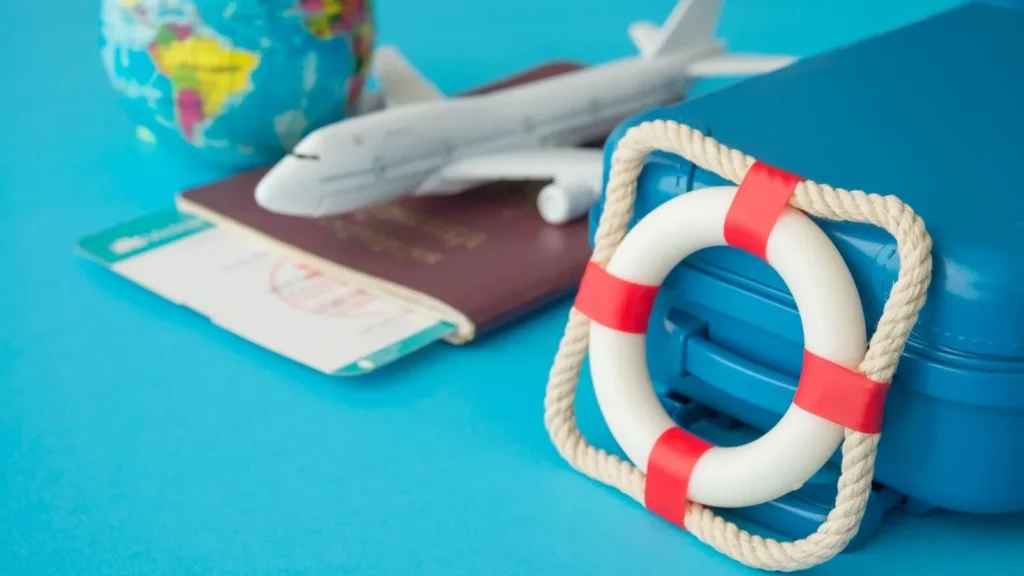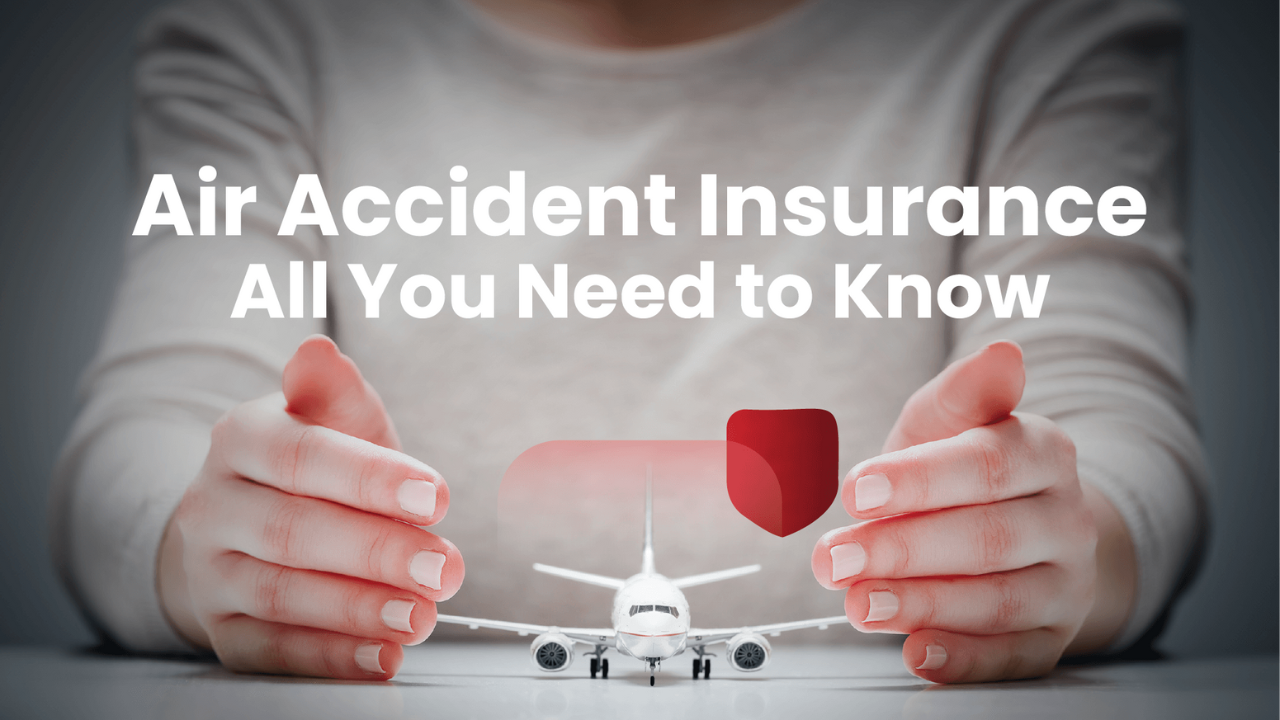Flight Accident Insurance Coverage FAQs: In the aftermath of a tragic air crash like the Air India flight AI 171 crash in Ahmedabad, which claimed hundreds of lives including passengers, crew, and innocent people on the ground, many are left grappling not only with emotional loss but also financial insecurity. This harrowing incident has thrust the concept of flight accident insurance into the spotlight. While such accidents are rare, the ripple effects are devastating and long-lasting, particularly for families and legal heirs of the deceased.
Fortunately, international and domestic laws provide a framework for compensation and support. The Montreal Convention of 1999, which India has ratified, mandates aviation insurance compensation for passengers involved in international flights. Additionally, depending on the passenger’s individual circumstances, they may also be covered under travel insurance, life insurance, employer coverage, or credit card-linked insurance policies. Each of these layers of protection plays a crucial role in delivering financial relief to the victims’ families.
This article serves as a comprehensive guide to flight accident insurance coverage, eligibility, application process, fees, benefits, and legal frameworks that come into play. Whether you’re a frequent flyer, an occasional traveller, or a nominee of a passenger, this article will help you understand your rights and the avenues available for compensation.
What is Flight Accident Insurance?
Flight accident insurance is a specialized type of travel insurance that provides coverage in the event of an accident or death during a commercial flight. This includes compensation for injuries, permanent disability, or death, depending on the policy. Airlines are also mandated under international agreements like the Montreal Convention to compensate passengers in case of death or injury.
Who Can Apply for Flight Accident Insurance?
Anyone purchasing a flight ticket can opt for flight accident insurance. Here’s a detailed breakdown:
- Individual Travellers: Domestic and international flyers can purchase flight accident insurance while booking a ticket.
- Frequent Flyers: Business travellers and frequent flyers often get insurance through corporate packages or credit card-linked travel plans.
- Corporate Employees: Many companies provide employer-sponsored insurance that includes flight accident cover.
- Families/Nominees of Deceased Passengers: Can claim aviation insurance and other linked insurance benefits posthumously.
Insurance Fees: What is the Cost?
The cost of flight accident insurance varies depending on the coverage and provider:
| Insurance Type | Approximate Fee (INR) |
|---|---|
| Airline-linked Travel Insurance | ₹50 to ₹200 per trip |
| Third-party Travel Insurance Plan | ₹100 to ₹1000 per trip |
| Credit Card-linked Travel Cover | Free or bundled |
| Annual Comprehensive Travel Plan | ₹3000 to ₹7000 per year |
- Premiums are generally affordable and can be added during the flight booking process or purchased separately from insurance providers.
- Credit cards from companies like Visa, Mastercard, and American Express may provide built-in flight insurance benefits.
How to Use the Insurance in Case of an Accident
In the unfortunate event of a crash or fatal accident, here are the steps to activate and claim flight accident insurance:
- Notify the Insurance Provider: Inform the insurance company within the timeline mentioned in the policy (usually within 30 days).
- Submit the Required Documents:
- Death Certificate
- Proof of Travel (e-ticket or boarding pass)
- FIR or Accident Report
- Nominee ID Proof
- Claim Evaluation: Insurer will verify the documents and assess the claim.
- Payout: Once approved, compensation is transferred to the legal heir or nominee.
Benefits of Flight Accident Insurance
1. Financial Compensation
Helps families recover financially after the sudden demise or injury of a breadwinner.
2. Covers More than Just Death
Depending on the policy, benefits may include permanent disability, hospitalization, or emergency medical evacuation.
3. No-Fault Compensation under Montreal Convention
In international crashes, families get up to 1,28,821 SDR (approximately ₹1.5 crore) without needing to prove airline fault.
4. Peace of Mind for Travellers and Families
Knowing there’s a financial safety net provides mental peace before flying.
How to Apply for Flight Accident Insurance
1. During Flight Booking
Most airlines offer optional insurance during ticket booking. You can select it before final payment.
2. Via Travel Insurance Providers
Purchase standalone plans from insurance platforms like Policybazaar, ICICI Lombard, Tata AIG, etc.
3. Credit Card Enrollment
Ensure your credit card includes travel insurance and register your trip if needed.
Important Dates
- Montreal Convention Ratification: India ratified it in 1999. Montreal Convention Text – ICAO
- Claim Deadline: Most insurers require claim submission within 30 to 60 days post-incident.
- AI 171 Crash Date: [Insert actual date once confirmed – placeholder].

Disclaimer
This article is for informational purposes only. Insurance policies and compensation amounts may vary depending on the insurer, policy terms, and specific circumstances of the incident. Always read your insurance policy documents carefully and consult with your insurance provider or legal advisor before proceeding with claims.
Flight Accident Insurance Coverage FAQs Conclusion
Flight accident insurance serves as a critical financial safety net in rare but catastrophic events like the Air India AI 171 crash. The unfortunate tragedy has highlighted the importance of understanding your rights and entitlements under multiple insurance frameworks. For passengers, families, and nominees, knowing how compensation works can make a difference during life’s most challenging times.
Government regulations and international conventions like the Montreal Convention ensure that airlines are held accountable and families receive a minimum assured compensation. In addition, private insurance policies such as travel insurance, life insurance, and credit card-linked plans add layers of financial protection.
The affordability and ease of obtaining flight accident insurance make it a must-have for all travellers. Even a basic policy can significantly reduce the emotional and financial burden on families during post-accident proceedings.
Being informed, proactive, and insured is no longer an option—it’s a necessity in today’s unpredictable world. Whether you’re a solo traveller, a corporate employee, or a family member of a frequent flyer, staying prepared is the best course of action.
Flight Accident Insurance Coverage FAQs
1. What compensation is provided under the Montreal Convention?
Under the Montreal Convention, airlines are liable for up to 1,28,821 Special Drawing Rights (SDRs) per deceased passenger, which translates to around ₹1.5 crore. This amount is paid irrespective of whether the airline is proven at fault or not.
2. Is flight accident insurance mandatory?
No, flight accident insurance is not mandatory. However, airline liability coverage under the Montreal Convention is mandatory for international flights. Personal accident or travel insurance is optional but highly recommended.
3. What other types of insurance may come into play during a flight crash?
Apart from aviation insurance, the following may apply:
- Life insurance
- Personal accident insurance
- Credit card-linked insurance
- Employer’s group insurance
- Government ex-gratia payments
4. How long does it take to receive compensation after filing a claim?
Once all documents are submitted and verified, insurance payouts are generally released within 30 to 90 days. Legal complexities or disputes may delay the process.
5. Can family members of passengers claim multiple compensations?
Yes, family members or legal heirs can claim compensation from multiple sources—aviation insurance, travel insurance, life insurance, and any other relevant policy that the deceased may have had.











